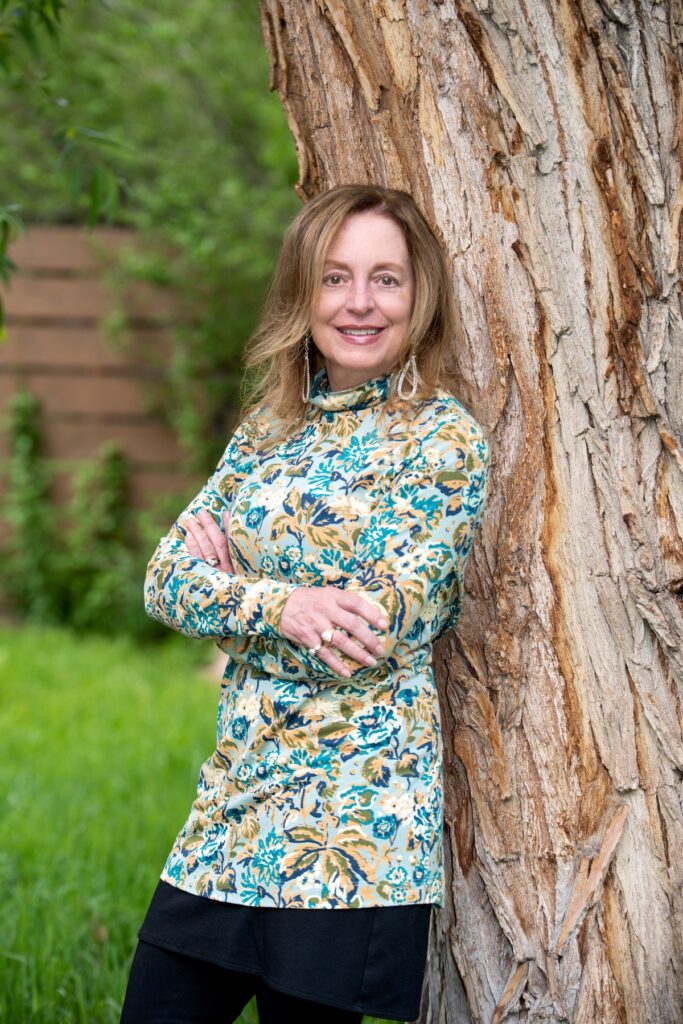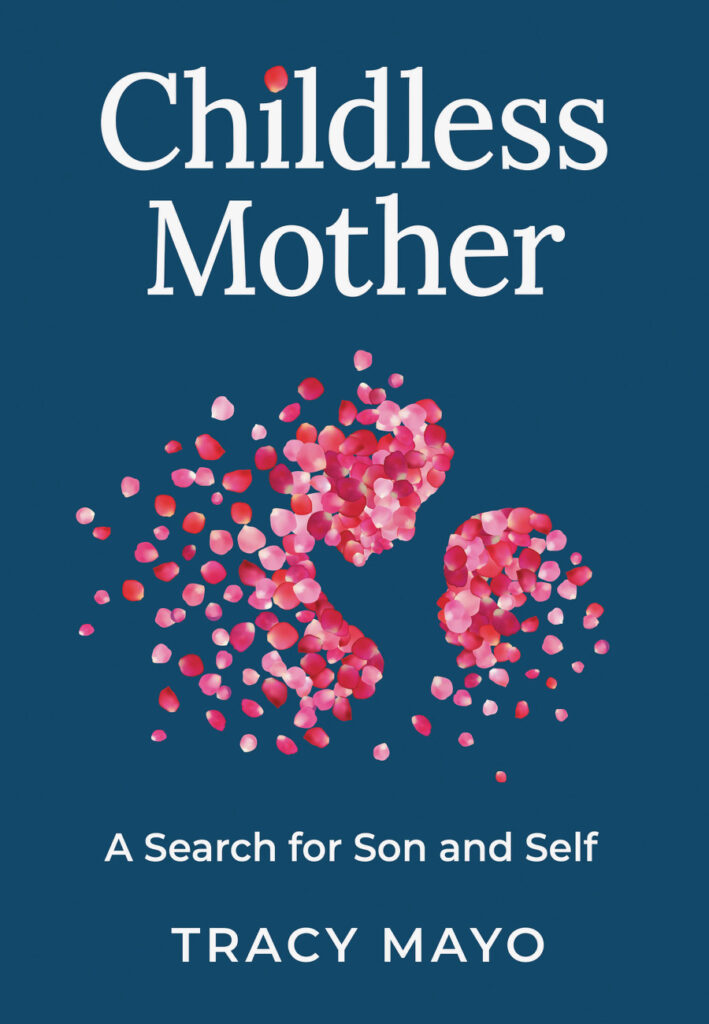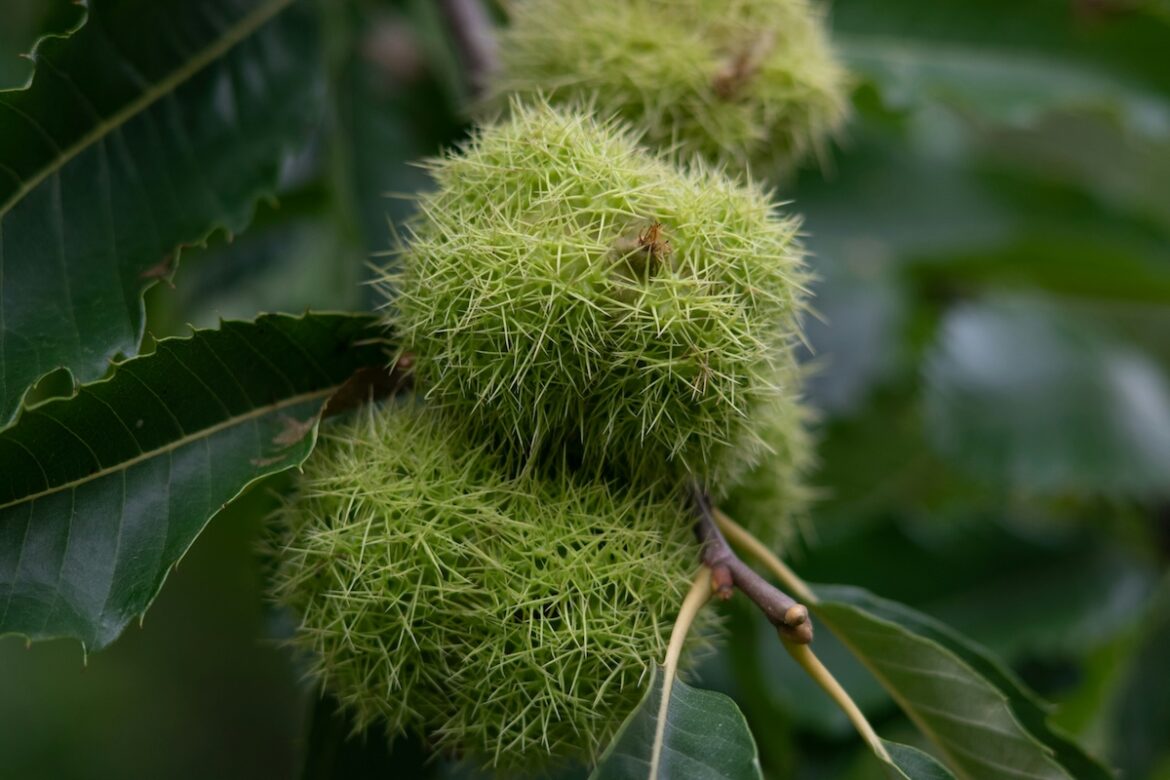An excerpt from Childless Mother: A Search for Son and Self, the story of the author’s search during the pre-Internet era for the son she was forced to relinquish when she was fourteen years old.
By Tracy Mayo
1982
Northwest mountains of North Carolina
Tracy is 27, Thomas is 12
The elderly chestnut, lone survivor of the blight, stood as a centerpiece of all that could be surveyed from the expansive front porch. Others of its kind had once covered these Blue Ridge mountains like a shawl over shoulders on a cool evening. The deeply furrowed bark belied the ease with which an exotic fungus had slipped into the cambian and felled its brothers and sisters, once giants of these forests.
A singular sentinel—isolated, yet resilient. When weather was favorable, I would take my morning meditation in the rocking chair on the porch, facing the chestnut. In spring the flowing white catkins waved like streamers on little girls’ bike handles. Come summer the lush, saw-toothed, dark green leaves shaded the cultivated wildflowers beneath. Autumn equaled yellow blaze. But in late fall, when the burrs should have encased three chestnuts each, there were no harvests. The lone tree was sterile. Even so, it grew its canopy year by year, waiting patiently for a favorable wind to carry news of another survivor.
Most weeks I spent my day off from our business tending to the ample vegetable garden, which lay between the chestnut and our log cabin. The ancient mountains, worn down now to lush rolling hills, grew a dark sandy loam that needed no amendments other than the occasional side dressing of composted manure. I worked in the partial shade of a four-foot diameter, ground-mounted satellite dish that provided live feeds of sports and the BBC. In early fall, with afternoon’s slanted light, the bountiful harvest brought the last of the corn, the first of the autumn squashes, more tomatoes than I could put up, and the final raspberry yield.
I loved these mountains. It was here that I learned how to hoe the soil on top of the new potatoes; how to differentiate between the fringed gentian and the purple fringed orchid; how to be at the ready with one hundred pounds of black-oil sunflower seed when the migratory flocks of evening grosbeaks arrived in the front fields every April.
I returned the hoe and the cultivator to the shed my husband had built, next to the chicken house he’d built as well. I poured grain into the self-feeder and retrieved eggs from the six straw-appointed nest boxes, apologizing to the unhappy brooding hen who pecked at my hand as I pulled her warm egg from underneath. Normally the hens laid their eggs, then abandoned them to the morning pursuit of food. But two or three times a year each hen yielded to her instinctive need to raise a brood. If we wanted to manage the flock’s size, we had to faithfully remove their egg each morning.
She didn’t want to give it up, but I took it from her anyway. Heartbreaking.
________
It’s been twelve years since I gave my baby away.
I was the lonely, only child of upwardly mobile military parents. After our eighth move in my thirteen short years, I longed for a normal adolescence—to have friends, to feel settled. What I got was a pregnancy at fourteen and exile to the Florence Crittenton Home for Unwed Mothers in Norfolk, Virginia. There, I bore not only a child but also the weight of the culture’s shame. I was told to relinquish my son at birth and never speak of him again.
It was 1970. They said it would be “best” if I could forget, which only made me more determined to remember.
_______
I remembered that boy at the bank the previous morning, about the right age—twelve, brown eyes and light brown hair. His face looked familiar. I could find him again; ask about his birthday. Then I stopped, today’s eggs in my basket, shook my head, and willed myself not to go down that unsettled path I had traveled so many times before.
Three years before, I’d followed a blond-haired, brown-eyed boy at the spring Ramp Festival in Independence, Virginia. I pretended I was interested in the children’s games, but his mother sensed my focus, glared. Once in Durham, my college town, I thought he sat next to his parents and an older girl at my favorite restaurant, Somethyme.
And one evening, twilight gathering, Duke Forest, I thought I heard his then four-year old voice. I stopped to listen, knew it was impossible, but with clarity beyond the finest crystal, understood he was out there.
I had left my brown-eyed baby in Norfolk. He could be anywhere, but almost certainly not in the little mountain town of West Jefferson, North Carolina.
________
The only time I embraced a move was in 1971, a year after my son’s birth. My navy father was ordered from Norfolk back to the D.C. area. Grateful to escape the compulsion to search for my baby in every passing stroller, I could focus on recreating my life. I could barely imagine how my Florence Crittenton friends, not from military families, lived with the very real possibility that their child might grow up in the next town, or the next block. An unthinkable torment.
And yet looking back, I can see that I never stopped searching for my baby in every passing stroller. Unlike the chestnut, I wasn’t sterile: I was a childless mother. A mother to my core, my sense of self rooted in the soil of growing and giving birth to a child I’d been forced to give up. Everything I was doing with my life in the mountains of North Carolina—gathering up my resources both externally and internally—was to serve the eventual search for my son.
___________
That fateful move to Portsmouth in 1968. Of all of them, the one destined to change my life forever.
The hair-tinged-green-with-chlorine lifeguard. Cartwheels and broad jumps in the park on a sultry summer night. Giggling explorations in the navy chapel. The sweatshirt around my shoulders on a surprisingly cool evening. The hard buttons on the bare blue and white striped mattress pressing into my hip as I accepted the full weight of him. The realization, the fear, the earnest need for my mother. And the pink and yellow pills on my nightstand.
I can hear my mother’s voice:
“This is what you get for playing with fire. Just what did you THINK was going to happen?” Mom handing me two girdles and proclaiming: “Wear these every day to school. Make sure you only change into your gym clothes in the bathroom stall.”
In my brown-and-yellow-striped footie pajamas, the eavesdropping at the top of the stairs.
Mom’s voice again: “We could send her to Seattle, make up some story about my parents.”
And Dad’s reply: “We could say she went to Seattle, but we could send her to a home for unwed mothers instead.”
And so it was done.
What might have happened if my mother, as a mother, had acknowledged the exorbitant price I would pay, and stood up for me? If I had been free to help with the baby when I could, while back in school, eventually to college? If Tommy and I had gotten married and reclaimed our young son? All the TM and LSD that I turned to in crisis, the ways I tried to find a unity of being, a still point of connection in the world: It was all about discovering and holding on to the connection to my son.
__________
The canning days passed. I put up my lime pickles, the spicy tomato juice, my serrano-infused corn, the mulberry jelly—and beets, green beans, okra. One day we drove down the mountain to the city below to visit museums and a truck farm, and returned with a new hen and rooster, the heirloom breed known as Plymouth Rock. We would breed and allow the hen to raise a few chicks, contribute to the genetic diversity, before the rooster would grow bold enough to challenge the resident Rhode Island Red—and therefore, be fated to chicken and dumplings.
I watched the chestnut drop its leaves, pulling its energy down to last another winter. This deeply rooted survivor, the landmark of my life.
On a chilly fall night when Jim taught at Appalachian State University as an adjunct, I stoked the fire, retrieved the precious photograph of my infant son, now twelve years old. Tucked into the same scalloped blue envelope from 1970, a still ocean hidden in a box of note cards, left bottom drawer, my nightstand, the same home it had occupied through all my moves. I examined his tiny face and imagined how he might look today.
I placed the photo on my folded knees, closed my eyes and started my mantra. I would practice my TM, I would touch the peace and calm of absolute Being, and wherever I went the universe would keep us connected, through a silvery thread, with me at one endpoint and my son at the other.
Tracy Mayo lives in Boulder, Colorado with her husband and flat-coated retriever. Her memoir, Childless Mother: A Search for Son and Self will be released by Vanguard Press on March 28, 2024.



